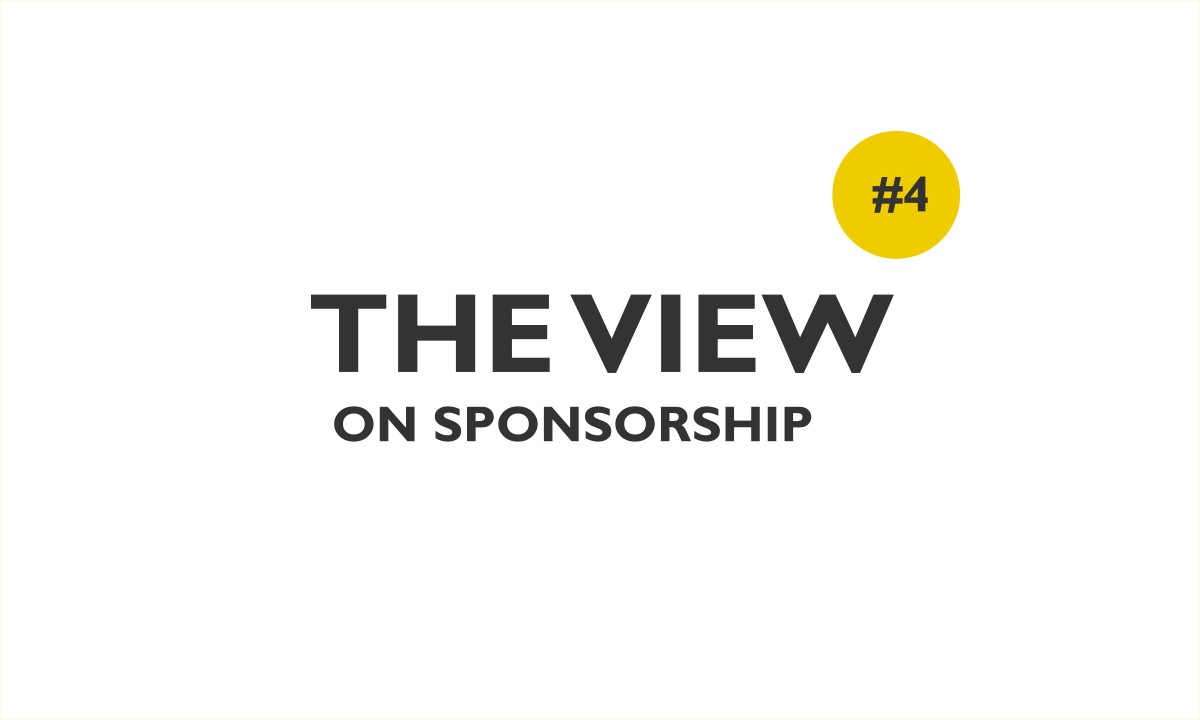Proactivity and an analytical approach are the basis to excel in managing sponsorship relationships.
Rights holders know the importance of having a good understanding of their sponsors’ satisfaction. A lot of effort goes into managing these relationships and they want to ensure that, when entering the renewal window, the conversation is as linear as possible and leads towards a positive outcome.
Through our recent research¹, we discovered that excellent service helps sponsors leverage their investment better, produces better business results and increases the chances of sponsor renewal.
So, adopting an analytical approach to monitoring the service level becomes fundamental for improving retention and consolidating the revenue stream. We found, in fact, that:
86% of sponsors think that measuring the quality of service provided would help rights holders identify how to improve overall sponsor satisfaction.
The best way to approach sponsor feedback
It starts with recognising that sponsorship is a ‘different beast’ and that adapting generalistic satisfaction methodologies is unlikely to be effective. Beyond the transactional aspects, the sponsor-rights holder relationship develops, in fact, with its own peculiarities and requires extensive planning, competence, alignment and collaboration in order for the sponsorship to come to life and bring results. This makes it difficult to borrow existing measurement models from other B2B industries.
If we want to produce insights that can be acted upon, sponsor feedback research needs to present the following characteristics:
- SPECIFIC – To understand how satisfied your sponsors are, you need to know the satisfaction parameters to research and quantify.
- EXPERT – Designing, conducting and analysing research requires specific skill and time. Cutting corners in any of these phases will decrease the quality of the insights.
- UNBIASED – Personal involvement can inadvertently hide or exaggerate meaning and produce irrelevant or unreliable data.
Know what to measure
The trouble with measuring sponsorship service quality and sponsorship satisfaction is that they are areas that have not been researched to a great extent before. Those rights holders who see the potential of service as a value generator don’t have solid points of reference to base their research and analysis on.
This produces two scenarios. Research that is too broad to capture what truly matters or research that does not grasp the complexity of the sponsor-rights holder relationship.
Omitting critical factors from the research can cause a lack of confidence in the measurement instrument itself and will always leave you wondering if you can rely on the insights you produce.
If we add that sponsor feedback is typically self-administered through short surveys and these often struggle with response rate, response attribution and depth of analysis, then we end up with insights that could be met with internal criticism and dismissed as a basis for decision-making by senior management.
Rely on research expertise
Understanding how to improve the way you work with sponsors can be a patchy exercise. You need to research at the individual sponsor level, but also you need to make sure that any resulting change works in harmony with the needs of the rest of your partners.
The research output needs to keep into consideration the multi-layered nature of sponsorship dynamics and produce insights that allow you to fix specific issues. It needs to have, at the same time, a broader view to identify sponsor needs, opportunities and areas for added departmental efficiency.
To achieve this, in-depth interviews are the best option, but you need to rely on professionals who can deliver effective research design and that have the right skills to gather the data, analyse it and present it in a way that helps you zoom in and out without losing the perspective on what the priorities are.
Designing and handling research that achieves this is often outside of a sponsorship professional’s skillset and takes a considerable amount of time. This is one reason why rights holders opt for online surveys which are deceptively quick and simple but might end up being time-consuming, nonetheless, and too shallow in terms of insights.
Don’t mark your own homework
As well as the expertise in designing research, producing data and using the correct analysis methodologies, getting sponsor feedback requires a certain degree of independence.
You need to pose the right questions and the sponsor needs to give honest answers. There are critical topics that rights holders aren’t aware they need to ask or won’t feel comfortable asking about, limiting the possibility of understanding potential issues, and others that sponsors won’t be able to answer with frankness directly to the rights holder. Personal involvement can, in fact, inadvertently prevent objectivity and hide or exaggerate meaning. And nobody wants research based on irrelevant or unreliable data.
A new research and measurement methodology
Specific, expert and unbiased are three prerequisites at the base of in-depth and reliable insights that can be relied upon to make business decisions.
With this in mind, we developed Sponsor View, the first sponsorship-specific service for measuring sponsorship service quality and sponsor satisfaction. It is grounded on our extensive knowledge of the subject and the measurement models we designed as a result of the first global study on the subject, which we conducted in partnership with Loughborough University London.
Sponsor View is an interview-based research solution that combines qualitative and quantitative insights. It helps rights holders identify what truly matters to their sponsors, measure their expectations and perception level towards critical parameters, and it digs deep to find out the causes of potential dissatisfaction or areas of improvement.
As service is becoming critical in determining the perceived value of sponsorship, this innovative research service aims, ultimately, to help rights holders improve the way they generate value to sponsors and become more appealing and competitive.
We’d love to tell you more about Sponsor View and how it can help your organisation be more proactive, transparent and professional in its commitment to sponsorship excellence.
¹’What drives service quality in sponsorship’. A global research study conducted between 2018-2021 by Millharbour Marketing and Loughborough University.

